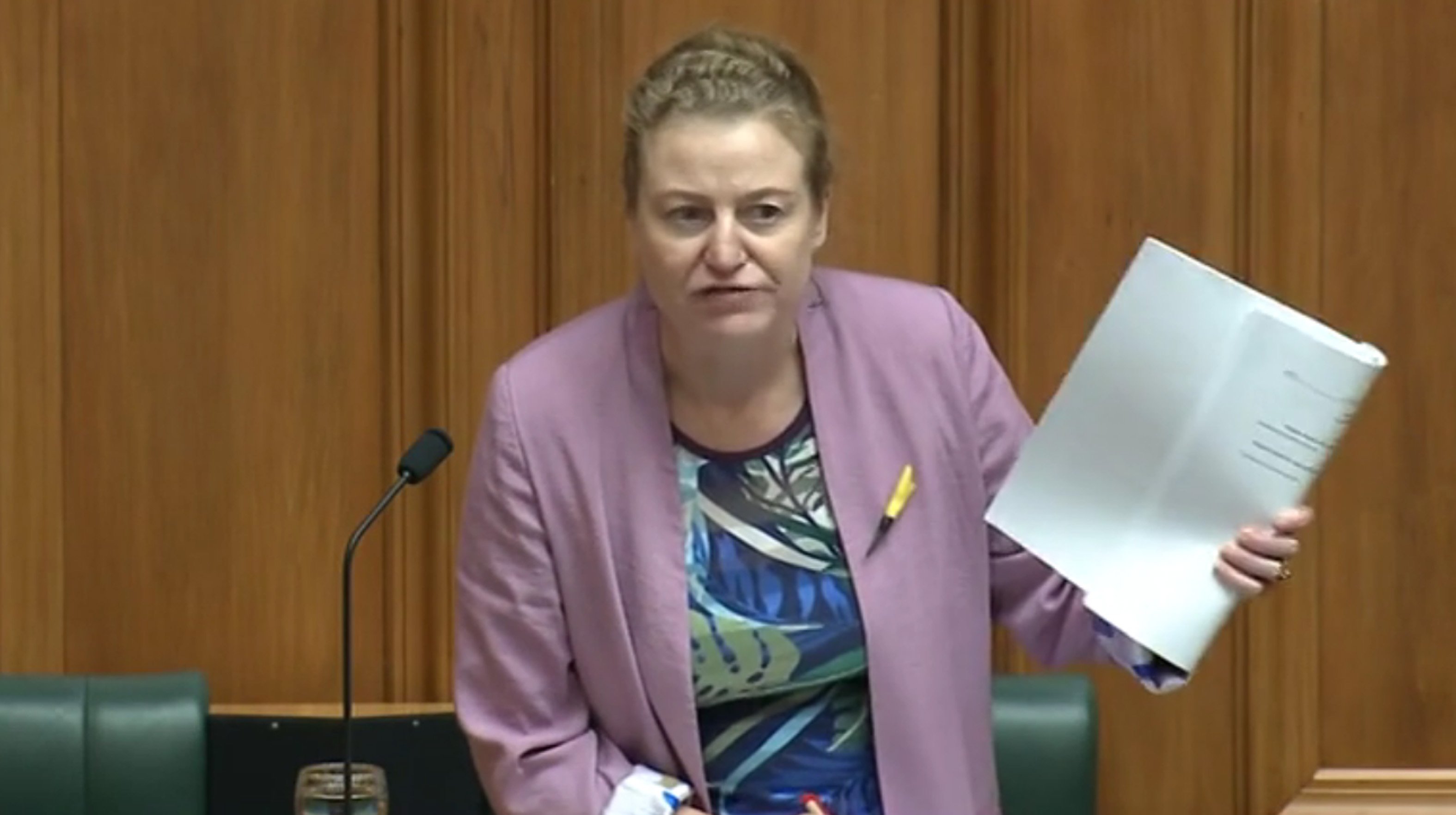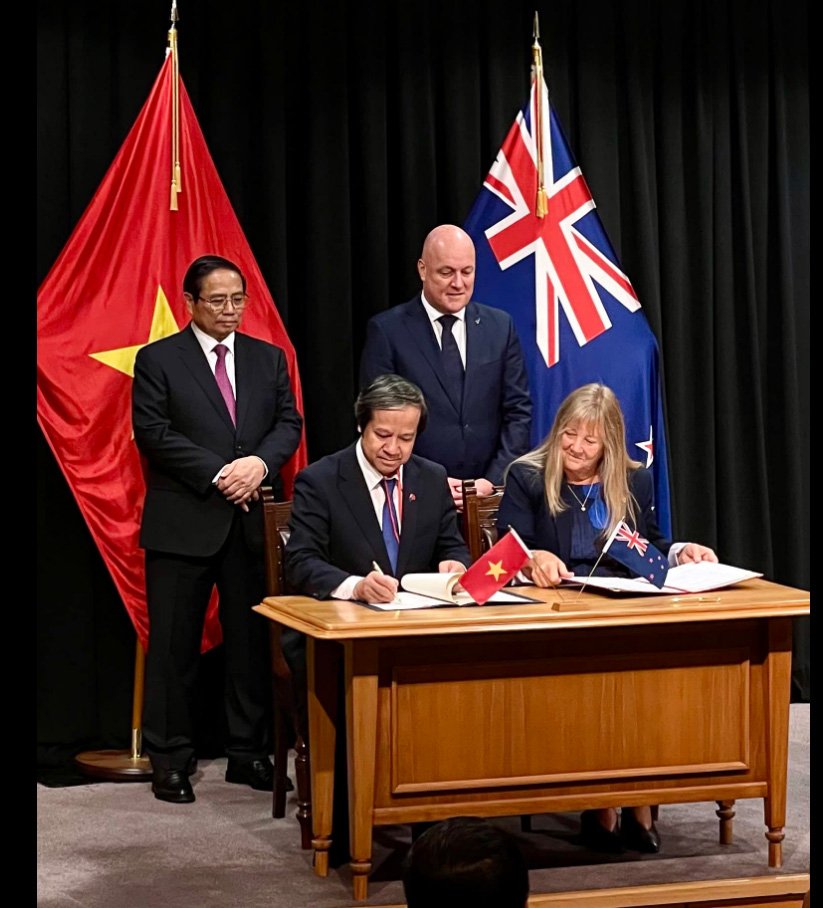
Even the government MPs’ shouts of bravado sounded a tad forced as Chris Bishop, with his Minister Responsible for RMA Reform hat on, introduced the Fast Track Approvals Bill to the House.
It had only been a fleeting acquaintance up to that point (more on that shortly) but Mr Bishop was clearly smitten.

"What we do in New Zealand too often is we spend all this time and money getting things ready to go, and then we get the money together — whether it's public or private — and everyone goes, ‘Righty-oh, this is good’, and then we go off to get resource consent, and seven years later we wake up, and the resource consent hasn't happened, inflation has improved the cost of everything, and all of a sudden the project's not necessarily viable or economic.
"What I want to do, and what the government wants to do, is reverse that."
And reverse it it will when this Bill passes although — ironically given the government’s enthusiastic use of urgency in recent weeks, the fast tracking Bill has been sent down the slower path of select committee scrutiny.
And quite rightly so, for it places enormous powers in the hands of Mr Bishop and Regional Development Minister Shane Jones, and it is only fair that the people get their say on whether this is a good thing or not. Mr Bishop, to his credit, recognised that some might question what he called a "design feature" of the Bill, hence it not being passed before a period of consultation.
The Bill should have looked familiar to Labour: it is very much modelled on its fast track consent legislation passed during the Covid-19 emergency.
However, there are key differences. Labour’s legislation listed the projects to be considered for fast-track consenting while the present government has opted to — literally — leave the schedule of projects as a blank page.
Those schedules — 2A and 2B — will eventually be filled in via an application process. 2A will contain projects automatically granted approval, while 2B is a holding pen of projects which may or may not eventually end up applying for fast track consent.
An independent "Fast Track Advisory Group" will be set up to provide advice to the relevant minister as to what should be on the schedules but the ministers — with final Cabinet sign-off — will make the important calls. Labour’s Act left the final consent call to an independent panel under the auspices of the Environmental Protection Authority.
Although quite what relevant ministers will base their decisions on is questionable: the Bill specifies that project spruikers "need only provide a general level of detail about the different approvals required for the project, sufficient to inform the joint Ministers’ decision on the application".
Many people — and Dunedin Labour MP Rachel Brooking is one — would like a whole lot more consideration and safeguards in place than "a general level of detail".
Ms Brooking won plaudits in her first term for her measured and reasoned approach to highly technical issues.
In her first reading speech, that all went out the window as a visibly angry Ms Brooking let out all her frustration at watching the new government roll back the old one’s hard work.
"This Bill that was introduced only 12 minutes ago. We've had this Bill for 12 minutes and we're speaking on it now — that is shameful, like everything else about this Bill," she said.
"We want to keep the fast-tracking provisions of that Natural and Built Environment Act — they are there already—but this government shows no interest in using those and instead wants to go ahead with this very dangerous proposal that puts far too much decision-making into the hands of a select few ministers."
This was not just a sour grapes-tinged whinge. It was possibly Ms Brooking’s best performance in the House so far as she ploughed on, despite many interruptions which previously might have derailed her, to lay out a scathing case about the government’s bright new Bill.
"The ‘environment’ is not a word we've heard in this debate from the other side or in answers to questions today, because there is no interest in the protection of that . . . You are not a serious government and this is not a serious Bill. What happened with the Covid legislation is that the panel could decline one of those listed projects. It was very clear that it could be declined on either inconsistency with the national policy statement or inconsistency with the Treaty.
"There is no such section that I have been able to find in this Bill, and in fact we just heard the minister say that this was very purposeful, that he wants the ministers to make the decisions, that the executive needs to be involved.
"If that is the case, then surely there should be a wide range of criteria that specify the sorts of projects that are in the public's interest to proceed."
Which are all very reasonable points . . . but so is the government’s contention that it should not take decades to build roads, bridges and other economically vital infrastructure.
It will be interesting to see what heed, if any, the government takes of the concerns of those wanting to strike a balance between the two when they make their submissions to the select committee.

Like your new mate, part 2
Waitaki MP Miles Anderson, obviously thrilled at having a picture of him standing alongside someone in a bear costume published in Southern Say the other week, made another bid for glory last weekend by hanging out with Mr Monopoly at the Wānaka A&P Show.
We believe in sharing things around though, so instead of that very amusing photo, here is Mr Monopoly, at the same show, with some more like-minded companions . . . Act New Zealand MPs Mark Cameron and local representative Todd Stephenson.

The international stage
It was a big day for Invercargill National MP Penny Simmonds on Monday when, as Tertiary Education and Skills Minister, she got to sign the renewed Education Engagement Agreement with Vietnam, under the watchful eye of Prime Minister Christopher Luxon and Vietnam Prime Minister Pham Minh Chinh.











